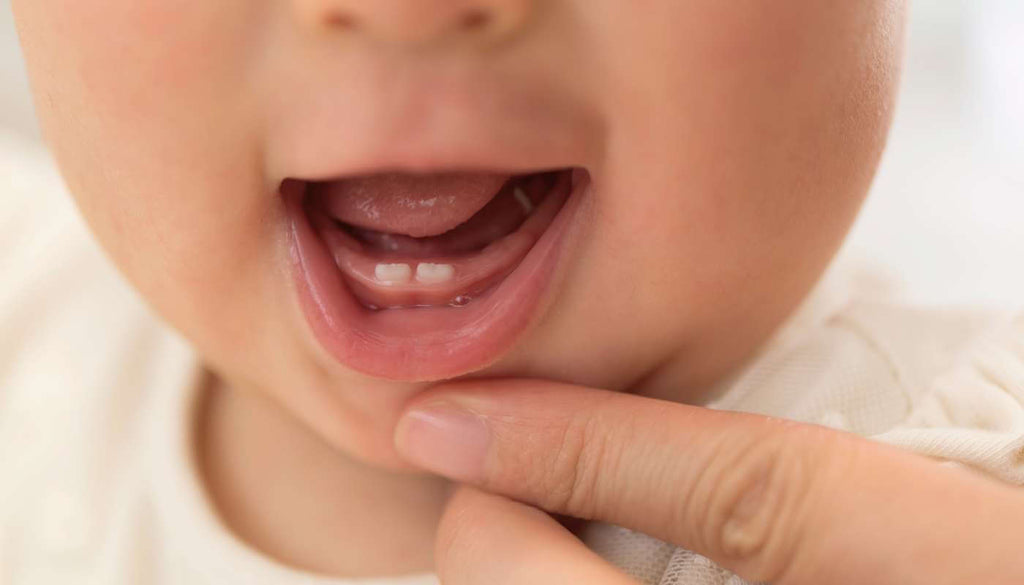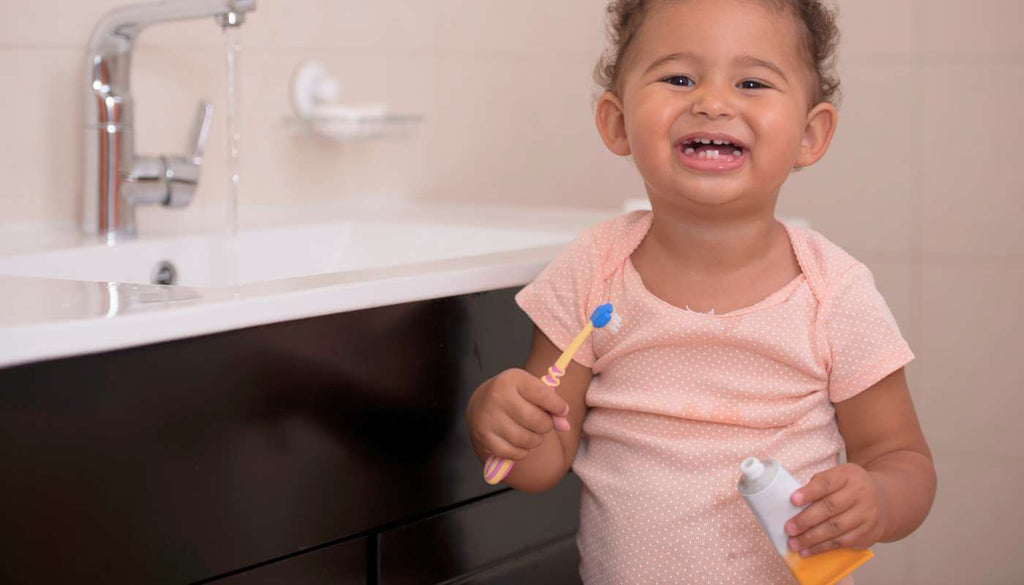
Natural Care for Baby Teeth
From the day your child is born, there'll be many exciting 'firsts'. One of those precious moments will be their first tooth. But did you know that the importance of good dental hygiene begins before their first tooth even arrives?

Baby dental care actually begins at birth
Under that gorgeous gummy smile there are 20 baby teeth (also known as primary teeth, milk teeth or deciduous teeth) hidden away, slowly pushing through between the ages of 6 to 10 months (or even as early as 3 months and as late as one year to first appear). Though there are no teeth to clean at this age, it's important to care for your baby's gums by wiping them gently with a clean, damp face washer or soft cloth. You may also like to try massaging gently with coconut oil as baby's first toothpaste.
Don't confuse teething with other illnesses
It can be a tough process for some little ones. Sore gums and grizzly babies. Around the same age, at approximately 6 months old, their immune systems start to change as the level of antibodies passed on from mother to child start to drop. That, along with generally putting anything their tiny fingers can grasp into their mouths may leave them prone to other illnesses. Watch for changes in sleep patterns, fussiness, rashes, drooling, runny noses or diarrhoea and be sure to eliminate bacterial, viral or middle ear infections if symptoms persist.
After the first tooth arrives
All you need to worry about at this stage is finding a toothbrush with a small head and soft, rounded bristles, or a silicone finger brush to gently massage baby's teeth and sensitive gums. You don't even need to worry about toothpaste at this stage. Use only water until the age of around 18 months. Brush once a day, generally after their last feed in the evening. Don't let your baby fall asleep with a bottle. Milk can pool in the mouth and the lactose in milk can feed the bacteria - their teeth should be cleaned first to help prevent gum disease and decay.
What to do about toddler toothpaste
After 18 months and the arrival of a few more teeth, you can start to introduce toothpaste. Dental experts and government health advisors recommend a low fluoride toothpaste for children, and you need to ensure that they spit it out. Too much fluoride in the blood can disrupt the cells that are forming their adult teeth (there are also studies linking high concentrations of fluoride with lower IQ in children). To help you choose a safer baby toothpaste, Hello Charlie has put together a cheat sheet. There are also safer adult toothpastes on the cheat sheet if you're looking for a more natural toothpaste for yourself.

Preventing tooth decay in young children
Children are not born with the bacteria that causes tooth decay. It is passed on by the caregiver through their saliva. That might be by sharing toothbrushes, or cleaning a dummy in your mouth before giving it to your child. So make sure that each person in your household has a separate toothbrush and that they aren't touching when you put them away.




